begin quote from:
Brace for October Surprise
Are we in for an October Surprise?
Story highlights
- Historically, October Surprises have had little effect on the outcome of presidential elections
- Julian Zelizer: But this year the October Surprise could have a more dramatic effect, in part thanks to technology
Julian Zelizer is a professor of history and public affairs at Princeton University and a New America fellow. He is the author of "Jimmy Carter" and "The Fierce Urgency of Now: Lyndon Johnson, Congress, and the Battle for the Great Society." The opinions expressed in this commentary are his.
(CNN)As
September comes to an end, presidential-election observers are
beginning to wonder if there will be an October Surprise. In a campaign
where the unexpected has become normalized, both parties -- but
particularly Democrats -- suspect that the next month could bring a
shocking revelation.
The
notion of an October Surprise gained widespread popularity in the 1980
election, when Ronald Reagan's campaign feared that President Jimmy
Carter would announce a resolution to the Iran hostage crisis only weeks
or days before Americans went to vote. While Carter was in fact working
on an end to the crisis, irrespective of the election, the Iranians did
not release the hostages until after Reagan's inauguration.
On
the rare occasions when October Surprises have happened, they have not
really impacted the outcome of the election. In 1956, Egyptian President
Gamal Abdel Nassar nationalized the Suez Canal and the Soviets invaded
Hungary shortly before the election. The crises, and Eisenhower's
responses, were not determining factors in the president's landslide
victory against Adlai Stevenson. He was well on his way to victory
before either crisis broke.
In
October 1964, one of President Lyndon Johnson's closest and most trusted
aides, Walter Jenkins, was arrested in a Washington YMCA for engaging
in sexual acts with a man. Though Johnson feared the arrest would hurt
his campaign, Johnson went on to enjoy a landslide victory against
Republican Barry Goldwater.
The
most dramatic incarnation of a political surprise took place in 1968. On
October 31, Johnson announced that he would undertake an immediate
bombing halt against the North Vietnamese in the hope of reaching a
peace agreement. The announcement sent shudders up the spine of
Republican Richard Nixon, whose campaign had promised that as president
he would bring peace. Some people in his campaign were so worried they
attempted to scuttle a settlement by promising the South Vietnamese a
better deal if Nixon became president. Nixon, though, went on to win.
In
1992, with just a few days left in the three-way presidential race
between President George H.W. Bush, Democrat Bill Clinton and
independent Ross Perot, former Secretary of Defense Caspar Weinberger
was indicted for having lied to a prosecutor during the Iran-Contra
investigation. The indictment brought back memories of scandals in the
Reagan administration to which Bush, as Vice President, had been
associated. The news certainly hurt Bush, though most agree many other
factors were responsible for his defeat, including the economic
recession.
An example of a small surprise came in 2000 (technically a November surprise) with the revelation that George W. Bush had been arrested for drunk driving
in 1976. While the story played to the doubts that many voters had
about whether he was capable of holding this job, Bush narrowly defeated
Al Gore with the help of a major Supreme Court decision.
This
year, though, the October Surprise could have a dramatic effect. And
the most important factor is technology, which has created the most
unpredictable political playing field that we have ever seen. While the
concept of an October Surprise usually revolves around what one of the
two campaigns might do or say in the final weeks, now we have an online
world where almost any individual or organization has the capacity to
disseminate embarrassing or damaging material within seconds and without
any editorial barriers. With the click of a button, an anonymous person
is capable of immense damage.
Adding
to this uncertainty is the potential for state actors, such as the
Russians, to intervene directly in the election either through the
release of damaging hacked information or, even worse, tampering with US
voting systems.
And the October
Surprise is more likely this year than others simply because this has
been a campaign where every week has revealed a new surprise. Donald
Trump has already made this one of the most unpredictable races in
American politics. His strategy is to constantly do what nobody thought
would be done, to make statements or throw out accusations once
considered out of bounds.
He also has been willing to grab onto the most tenuous claims (going back to 2012, when he was at the forefront of the 'birther' movement)
to generate controversy and achieve attention. His recent
"acknowledgment" that Obama was born in the U.S., after years of
promoting this false story, combined with his move to blame Clinton for
starting the birther campaign, demonstrated that he will continue to
feed the interest that exists in these kinds of stories.
His
strategy receives support from mainstream media, which thrives on these
kinds of attention-getting moments as a way to garner ratings and fill
airtime and Internet space. The convergence of a candidate who practices
this kind of explosive politics with this clickbait media environment
greatly increases the odds that October will look like the previous
months we have just witnessed.
Then there's the fact that the two leading candidates have intense unfavorable ratings.
This means there are many organizations, politicians and individuals
who don't want to see one of these two candidates win. If the polls
continue to tighten, this will greatly increase the incentives for
political activists on both sides to do something that will sway the
electorate their way.
Of course, in
an age of terrorism, the possibilities for a dramatic event always loom
large. The national security threat that Americans now face is one that
is highly unpredictable since we are not dealing just with adversarial
state actors or even organized terror networks but lone wolves who can
cause injury, death and chaos at any time. Regardless of its origins,
the bomb that exploded in New York on Saturday was a painful reminder of
the kinds of fears and dangers with which we must live.
Both
candidates understand there is a very real possibility they might have
to adjust their campaigns if a national-security crisis were to unfold
in the coming weeks.
And,
finally, both candidates are extremely skilled in the art of political
warfare. Clinton, because of her many decades of experience in different
roles in politics, and Trump, because of his time in the media
spotlight, are quite comfortable going after each other in ways that
might give other politicians pause. In the final weeks, it will be time
to unleash absolutely everything they have on the other.
None
of this guarantees that there will be an October Surprise. Indeed, a
calm final month would probably be the biggest shocker of all. But we
should all hold on to our seats. For many reasons, the odds are pretty
good that something shocking will happen next month.
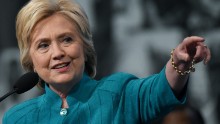








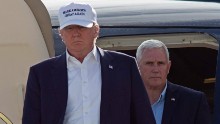


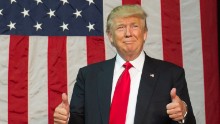





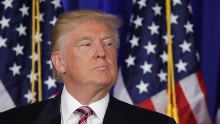
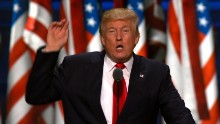


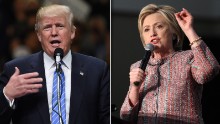


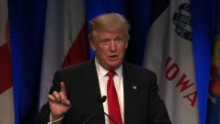












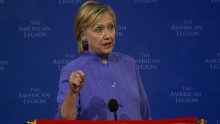


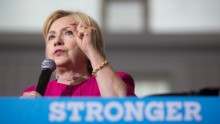
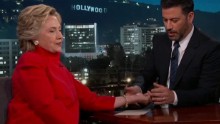
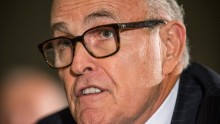




No comments:
Post a Comment